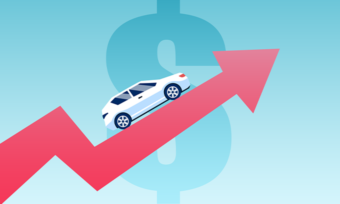KEY POINTS
- Consider doing plenty of research before buying a car to make sure the vehicle suits your needs.
- Making a budget for the car’s purchase price, registration, fuel and servicing can help you get a better idea of its overall cost, and if you’ll need car finance.
- Support for buying cars is available from different motoring organisations in Australia’s states and territories, as well as the state and territory governments.
Buying a car in Australia: 9 steps
There are a number of factors to consider when buying a car. To help you make the right choice based on your personal circumstances, here are nine general steps to consider:
1. Why do you need a car?
Are you looking for a small hatchback to get you from A to B? Or do you want an SUV for longer journeys where comfort may be an important factor? Knowing what you need a car for might help you narrow down your choices.
Some other questions to consider asking before you start your hunt.include:
- Is the car just for you, or for your family?
- Do you need a vehicle with plenty of storage space?
- How important is fuel economy?
2. How much can you afford to spend?
Whether you’re buying a new or used car, if you already have a car to trade in,this can impact the cost of the car you choose. You can check the potential value of a trade-in or private sale of your own car on RedBook or similar websites. These sites may be particularly useful if you’re buying a used car, as you can compare the advertised price to what’s being offered by others. And if you have money available upfront, this could put you in a better negotiating position.
If you’re considering trading in a car with finance owing, you may want to speak with your lender first.
If you need a car loan, it’s often a good idea to shop around and look beyond what a dealer is offering. Checking with other lenders can help you get a better idea of how much you can afford to borrow.
You may also want to check your credit score. Some lenders offer a range of interest rates for personal and car loans. If you have a low credit score, you may want to consider saving up or taking steps to improve your credit score to hopefully secure a lower interest rate.
Once you’ve found a car loan that’s right for you, it’s worth considering applying for pre-approval,so you know exactly how much you can spend when negotiating a deal.
Remember there’ll be other fees and charges you have to pay such as stamp duty, registration and insurance. There may also be delivery costs if you buy a car from a dealer or interstate.
Compare car insurance policies
If you’re comparing car insurance policies, the comparison table below displays some of the policies currently available on Canstar for a 30-39 year old male seeking comprehensive cover in NSW without cover for an extra driver under 25. Please note the table is sorted by Canstar Star Rating (highest to lowest) followed by provider name (alphabetical) and features links direct to the providers’ websites. Consider the Product Disclosure Statement (PDS) and Target Market Determination (TMD), before making a purchase decision. Contact the product issuer directly for a copy of the PDS and TMD. Use Canstar's car insurance comparison selector to view a wider range of policies. Canstar may earn a fee for referrals
- Save 15%^ on your first year’s premium when you purchase a new Car Insurance policy online.
- 24/7 Phone & Online Claims.
- Budget Direct - Insurance Solved.
- Insurance that's a bit more you-shaped.
- Canstar's 2024 Most Satisfied Customers Car Insurance - National Award.
- Lodge a Claim 24/7 with our Advisors
- Flexible cover before, 24/7 claims after.
- Save $75 on new Comprehensive car insurance online.
- Conditions apply.
- Option To Pay Monthly. Save On Your Premium By
- Increasing Your Basic Excess (Within A Given Range)*
- Lodge A Claim Online 24/7
- No age-based excess.
- No excess on your first covered windscreen repair.
- Canstar 2025 Outstanding Value Car Insurance Award.
- Choose base insurance or add on optional extras. Select from a range of excess options. Lifetime guarantee on repairs authorised by Bingle.
3. Do your research
Once you know the type of car you’re after and what you can afford, it’s worth researching vehicles from a range of different car manufacturers to help with your decision. You might be surprised at what’s on offer. It’s often a good idea to read plenty of reviews and comments online to see what people are saying about particular cars. If you’re in the market for a new car, websites like Drive and Whichcar may provide insight and reviews on newer models.
As part of your own research, you can check the car specs and compare them between models. Details should be available on a manufacturer’s website, or you can request a brochure from a dealer.
It’s also important to check if a car is safe, and if there’s been any product recalls issued by Product Safety Australia (such as for faulty Takata airbags). You can check a car’s safety rating from the Australasian New Car Assessment Program (ANCAP) or use the website howsafeisyourcar.com.au. Keep in mind that ANCAP safety ratings are applicable when comparing cars in the same category only, so a five-star ANCAP rating for a hatchback isn’t the same as a five-star ANCAP rating for an SUV.
4. Take a car for a test drive
Whether you’re buying from a dealer or a private seller, they should let you take the car for a test drive. Make sure you drive the car on a range of roads and at different speeds. Check the passenger and rear seats to ensure they meet your needs, such as leg room, and space for a car seat if required
When sitting behind the wheel,, it’s worth checking a few basic things:
- How comfortable the vehicle is
- How easy it is to see the dashboard display and locate the buttons and levers?
- How’s the visibility? Can you see clearly through the front and rear windows, and check the side mirrors?
- How does the music system look and work, plus any in-car navigation or other gadgets?
- Do you have enough cup holders?
- Does the car have enough leg room?
Test drive several different models if you can and make notes of any likes and dislikes. Sometimes your personal preferences about the car’s look and feel may matter to you just as much as what’s under the bonnet.
5. Decide between a new or used car
Depreciation in a new car usually occurs in the first year of buying. If it’s a new car you’re after, you could check to see if the dealer is offering any demonstration models for sale. You may be able to save a considerable amount of money this way, if you’re okay with the car having been used.
Buying a new or used car from a licensed dealer means you’ll typically be entitled to some form of warranty. If you buy from a private seller, you may not get a warranty. Buying at auction may let you get a good deal, but you have limited options if something goes wrong. The Australian Competition and Consumer Commission (ACCC) has a handy guide on your rights in consumer law.
If you’re buying a used car, you need to check the car’s history, its service logbook, whether it’s had any repairs or replaced parts, and if the odometer reading matches what’s advertised. Also, look for any fluid leaks as that could be a sign of poor maintenance, and mismatched paintwork could be from major repairs from a crash.
If it’s a private sale and you know nothing about cars, then consider asking someone who does to come along with you. You could also get the car inspected by an expert – if you’re a member of a motoring organisation, you can see if they offer a vehicle inspection service. Also, make sure to ask the seller if the car has been modified at all. Car modifications can affect your car insurance premiums and may also impact the potential resale value.
6. Make sure the vehicle is legal
If you’re buying a car privately, it’s your responsibility to check if the car is legal, hasn’t been stolen, written off or is subject to outstanding debt. For just $2 you can do a used vehicle search on the Australian Government’s Personal Property Securities Register (PPSR). Some motoring organisations also offer a similar service, or you could check at your local police station. All you need is the car’s VIN or chassis number, usually found under the bonnet, on a label in the driver’s door frame, at the bottom of the windscreen on the passenger’s side and on the registration documents.
The Royal Automobile Club of Queensland (RACQ) warns that police can seize a stolen vehicle and you’ll get no compensation. If there’s outstanding debt that’s owed on a car, this could also present a complex financial situation for yourself. If the car needs a safety certificate (the rules vary between states and to territories), check that it’s still valid.
Compare car insurance policies
If you’re comparing car insurance policies, the comparison table below displays some of the policies currently available on Canstar for a 30-39 year old male seeking comprehensive cover in NSW without cover for an extra driver under 25. Please note the table is sorted by Canstar Star Rating (highest to lowest) followed by provider name (alphabetical) and features links direct to the providers’ websites. Consider the Product Disclosure Statement (PDS) and Target Market Determination (TMD), before making a purchase decision. Contact the product issuer directly for a copy of the PDS and TMD. Use Canstar's car insurance comparison selector to view a wider range of policies. Canstar may earn a fee for referrals
- Save 15%^ on your first year’s premium when you purchase a new Car Insurance policy online.
- 24/7 Phone & Online Claims.
- Budget Direct - Insurance Solved.
- Insurance that's a bit more you-shaped.
- Canstar's 2024 Most Satisfied Customers Car Insurance - National Award.
- Lodge a Claim 24/7 with our Advisors
- Flexible cover before, 24/7 claims after.
- Save $75 on new Comprehensive car insurance online.
- Conditions apply.
- Option To Pay Monthly. Save On Your Premium By
- Increasing Your Basic Excess (Within A Given Range)*
- Lodge A Claim Online 24/7
- No age-based excess.
- No excess on your first covered windscreen repair.
- Canstar 2025 Outstanding Value Car Insurance Award.
- Choose base insurance or add on optional extras. Select from a range of excess options. Lifetime guarantee on repairs authorised by Bingle.
7. Weigh up whether to buy petrol, diesel or electric (including hybrids)
There’s plenty of talk about electric cars, with several manufacturers saying that in time, they intend to phase out their combustion engine models completely. Since Australia no longer manufactures cars, there may come a point in time when we can no longer import any petrol or diesel cars. Electric cars can be expensive to buy (though prices are dropping as supplies increase), but they can be cheaper to run. You may need to check if there’s support and infrastructure for electric vehicles, such as charging stations, in your location.
With hybrid cars, they can be powered by a battery or a combustion engine, depending on driving conditions. The battery is charged when driving so you don’t need to wait at any charging station, but the battery will wear out over time and need replacing, which could cost thousands of dollars.
If you want to buy a greener car to reduce CO2 emissions, you’ll need to do your research to find out which option best suits your own needs and finances, such as by using the Australian Government’s Green Vehicle Guide. There may also be special ‘Green Car’ loans or government rebates available when purchasing electric/hybrid cars.
8. Negotiate the price
Cars don’t always sell for the initial asking price, so be prepared to negotiate a better deal. Don’t be afraid to make a lower offer, though you might find it more difficult to negotiate on more popular cars, especially if there’s a waiting list, for example.
Ask what optional extras a dealer may be prepared to offer for free or at a discounted price, such as carpets, tech bundles or a tow bar. Remember these costs could be added to your loan, depending on what you negotiate. Be prepared to walk away if the price is not what you can afford, and compare offers from different dealers.
If you’re not comfortable negotiating, then you could engage the services of a car broker to do all the haggling for you. There are plenty of brokers around, but check for any fees or charges and whether they can help with the trade-in or sale of your existing car, if you have one.
9. Get the paperwork
When you’re about to finalise any deal, make sure you get all the relevant paperwork, including any contract, warranty details, car manual, safety certificate and registration documents. Make sure all the paperwork details match the car you’re buying. Don’t sign anything unless you’re happy with the terms, and have read all the conditions of your contract carefully. You do have some protection if the car turns out to be a lemon—a car that has faults or defects—but it’s better to do as many checks as possible before signing the deal.
If you’re buying from a dealer, you may be entitled to a short cooling off period where you can withdraw from a contract without penalty. If buying online, be extra careful to avoid scams. It’s a good idea to do the same checks as you would with a dealer or private sale, and make sure you never buy without seeing the car and having it independently tested. Finally, make sure the car you buy is registered and covered by adequate insurance before you drive it away.
- Save 15%^ on your first year’s premium when you purchase a new Car Insurance policy online.
- 24/7 Phone & Online Claims.
- Budget Direct - Insurance Solved.
- Insurance that's a bit more you-shaped.
- Canstar's 2024 Most Satisfied Customers Car Insurance - National Award.
- Lodge a Claim 24/7 with our Advisors
- Flexible cover before, 24/7 claims after.
- Save $75 on new Comprehensive car insurance online.
- Conditions apply.
- Option To Pay Monthly. Save On Your Premium By
- Increasing Your Basic Excess (Within A Given Range)*
- Lodge A Claim Online 24/7
- No age-based excess.
- No excess on your first covered windscreen repair.
- Canstar 2025 Outstanding Value Car Insurance Award.
Useful websites
You can check out reviews and advice on buying a car on the websites of all the state and territory motoring organisations, but for rules relating to buying, see the government websites for your location:
ACT
- ACT Government – Buying a motor vehicle
- National Roads and Motorists’ Association – NRMA
New South Wales
- NSW Government – Buying a vehicle
- National Roads and Motorists’ Association – NRMA
Northern Territory
- NT Government – Buying a new or used vehicle
- Automobile Association of the Northern Territory – AANT
Queensland
- QLD Government – Rules for buying or selling a vehicle
- Royal Automobile Club of Queensland – RACQ
South Australia
- SA Government – Buying and selling a vehicle
- Royal Automobile Association – RAA
Tasmania
- TAS Government – Buying, selling or transferring a vehicle
- Royal Automobile Club of Tasmania – RACT
Victoria
- VIC Government – Buying a new or used vehicle
- Royal Automobile Club of Victoria – RACV
Western Australia
- WA Government – Buying a vehicle
- Royal Automobile Club of WA – RAC
Cover image source: antoniodiaz/Shutterstock








